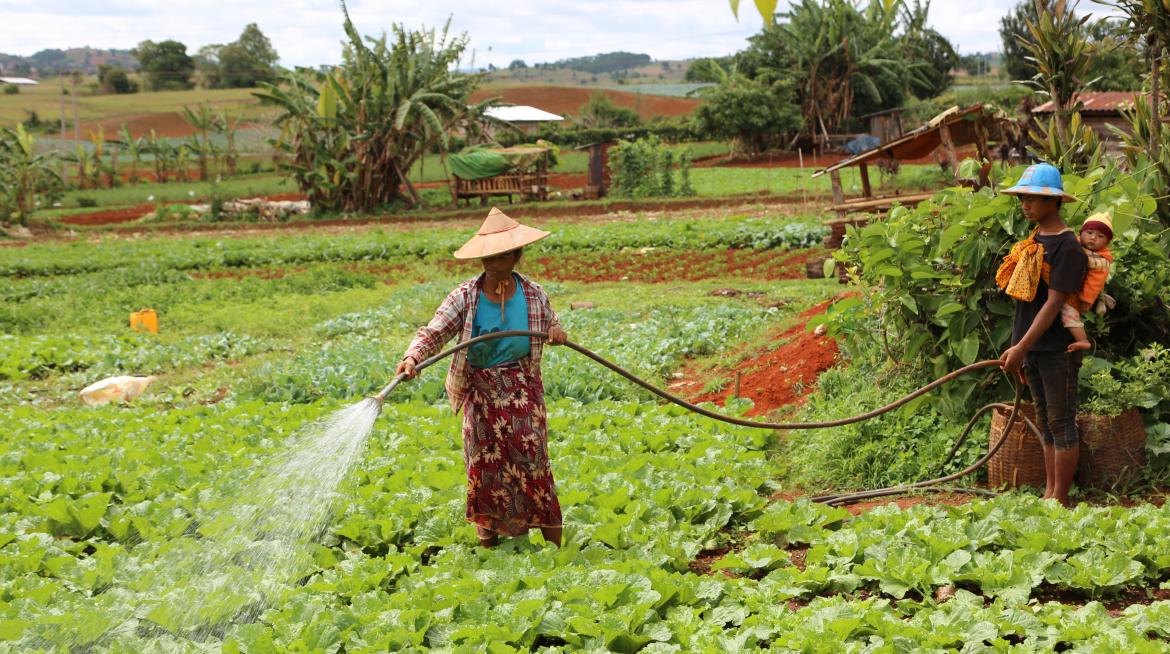
LIFT's gender partner, the Gender Equality Network (GEN) has released an important new report: Raising the Curtain.
This report looks at historical and current perceptions of a woman's role and, for the first time, documents how women in Myanmar are experiencing unfair gender gaps in the areas of education, health, media, the economy and sport.
GEN gathered data from 543 women and men in seven States and four Regions of Myanmar between September 2013 and May 2014. A clear gendered division of labour was prominent in all study areas.
Examples such as unequal wages for men and women’s work were recorded in all study areas, despite the equal pay for equal work guaranteed in the 2008 constitution. Barriers also exist for women wanting loans and credit, especially for unmarried or widowed women, and the lack of women’s rights to inheritance in some communities, poses serious problems for women’s livelihood opportunities.
GEN found that the education system emerged as one of the most powerful socialising agents with regards to gender norms, with norms perpetuated through educational materials and teachers.
Gender norms around appropriate work for women and men are interlinked with age hierarchies, a defining factor in Myanmar society. For girls and young women, the most common work opportunities GEN discussed among study participants were factory work, domestic work, and work at karaoke bars. These settings place young girls and women at increased risk of exploitation. The lack of comprehensive and appropriate national laws and policies on labour rights and sexual harassment in the workplace, as well as an absence of work contracts, withholding of salaries, unsafe working environments, and sexual exploitation, are among the potential threats to young female employees.
After presenting their findings in each section, GEN offers 'steps to transform inequitable norms' within the specific area.
Myanmar is becoming more aware of gender inequality as an obstacle to development and the attainment of human rights. In the face of the difficulties that women face with gender inequalities, there is increasing action within civil society networks and organisations to promote programming and advocacy for women’s rights and gender equality. See the Implications & Recommendations for Policy & Programming section of the report for more detail.
The Gender Equality Network is a diverse and inclusive network of civil society organisations, INGOS, and technical resource people working to facilitate the development and implementation of enabling systems, structures and practices for the advancement of women, gender equality, and the realisation of women’s rights in Myanmar. See more on their website and Facebook page.


